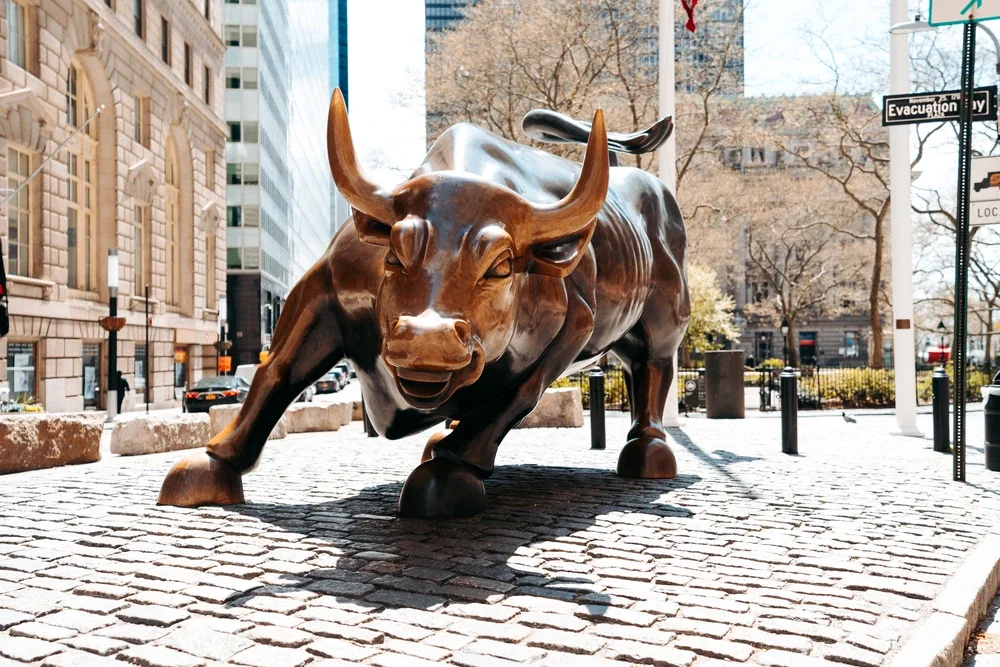
The revenge of the short-sellers: tamed by roaring markets, low interest rates and retail investors in the post-2008 years, short-sellers are planning to make up for lost time in 2023
‘We are entering a great sortation between what businesses are built to last versus which ones were built for the bubble,’ Mason Morfit, the CEO of San Francisco-based activist fund manager ValueAct, recently told investors.
‘We are shifting to a world where the rules matter again.’
No set of investors is more excited by that shift than short-sellers, who made fortunes betting against companies until the 2008 financial crisis but have found it harder going since.
The long post-crisis bull market paired with zero interest rates allowed the weakest of companies to prosper, while retail investors developed the skills to take on these masters of the universe, most notably in the GameStop saga.
Betting against companies — by borrowing stock and selling it, in the hope of later buying it back at a lower price — became riskier than ever.
End of the bubble
But rising rates, volatile markets and a possible recession have popped the buoyant outlook, while retail investors have been burnt in areas like crypto.
Short-sellers have returned to the headlines after New York-based Hindenburg Research released a critical report on Indian conglomerate Adani, wiping billions from its share price.
It could herald the start of a new golden period for shorts.
In London to launch a new fund, Jim Chanos, the veteran Wall Street investor who made a fortune betting against Enron, likens the period we are entering to the post dot-com bubble era.
‘From a fundamental short perspective there is going to be a very interesting set of companies going forward. A lot of them don’t have realistic business models,’ he says.

‘Fundamental short-selling had a great period after 2000, for the better part of 10 years, because of the companies that came public in 1999 and 2000. No matter where the market goes, you are going to see a large cohort of businesses that are challenged from a business model point of view.’
Chanos has spent almost four decades combing through company footnotes. Like other short-sellers he found the strategy more difficult after the financial crisis and was amazed by the downfall of Melvin Capital over its GameStop trade.
Collaborating on the social media platform Reddit, hundreds of retail investors had bet long on the stock to subject the long/short equity hedge fund to a ‘short squeeze,’ forcing it to cancel the trade and buy the stock back at a huge loss.
Dot-com on steroids
‘2021 was the most speculative year in the market I have seen in my 40-year career,’ says Chanos. From the meme stock craze to the SPACs boom and NFTs, bubbles were everywhere.
‘The combination of all of it, coupled with some huge IPOs and the belief the total addressable market was a legitimate way to value a company, was really a witch’s brew, in terms of over-valuation.
‘I called it dot-com on steroids and I firmly believe that.’

The US retail investor is ‘still very active’ particularly in the weekly options market, which Chanos calls ‘pretty much akin to gambling,’ but this could present opportunities now the market outlook has changed.
Chanos highlights an unnamed short on a company with a $2 billion-plus market cap but bonds trading at 25 cents on the dollar.
‘A finance professor would tell you that shouldn’t exist,’ he says. ‘It is akin to a casino late at night where the investor came in with a fair amount of money, is down 50 per cent but still has lots of chips.’
Hedge funds are now better placed to beat the retail crowd. ‘Maybe three or four cocktails in them and [retail investors] will be convinced to get it all back.’
Short-selling hedgies likened to ‘plague of locusts’
Short-selling hedge fund managers developed a ferocious reputation in the years before the financial crisis. Dubbed ‘locusts’ by politicians in Germany, funds betting against stocks built a track record of success, usually by spotting fraud or problem companies before others.
Short-selling is a risky business. Betting ‘long’ on a company has a finite loss — the stock going to zero — whereas losses on a short can be endlessly painful if the stock keeps rising.
A short going wrong can bring a hedge fund down — as happened to Melvin Capital.

Managers in the space emphasise it won’t be an easy environment, highlighting the late January market rally which forced many to unwind short positions.
The rally was not helpful but not a surprise, either, to Chanos. ‘We have seen these very sharp rallies since the first half of 2021 — the speculative peak,’ he says.
‘I would point out, from 2000 to 2002 there were eight to 10 such rallies. Every few months there was another jarring rally, particularly in the speculative stocks, when people said ‘we are back to the races’. I’m just not sure that is going to be the case.’
Short-selling opportunities in 2023
Chanos has been public on a few areas of shorts, including commercial real estate. ‘I think the office sector continues to be troubled, particularly in big cities. New York has [only] just got back to 50 per cent occupancy.’
He is even more bearish on the data centre space. ‘Investors are valuing them at very high multiples and there is no free cashflow in the business.’
Chanos highlights Wirecard as one of the few major success stories which validated the strategy since the financial crisis.
‘What was remarkable was that the stock still levitated for another nine months, until the company admitted the fraud itself.’
It was symptomatic of a financial climate which made life hard for shorts. ‘It has been a difficult environment because everyone was getting capital and time-frames were extended for money-losing companies to become profitable.
‘With rates back up to more normalised levels of 5, 6, 7 per cent, it is a different ball game.’
Will Wainewright is founder of Alternative Fund Insight, a news site focused on hedge funds and private markets.
More from Spear’s
How One Wall Street is turning landmark office space into luxury apartments






